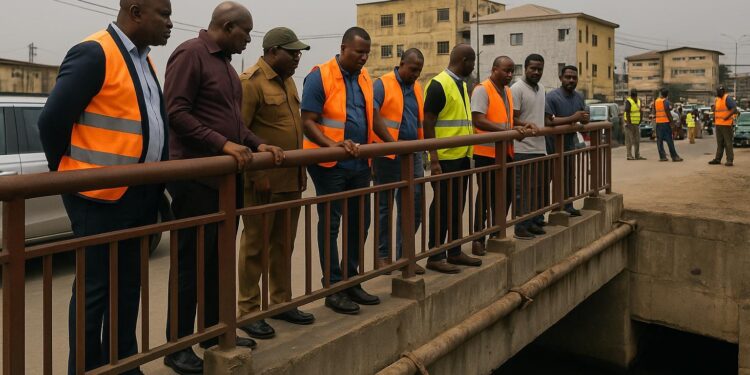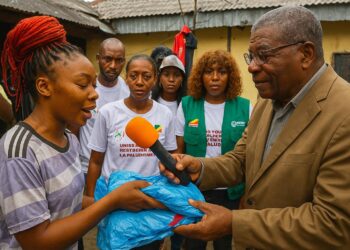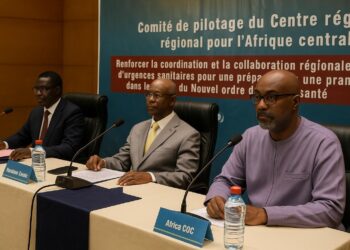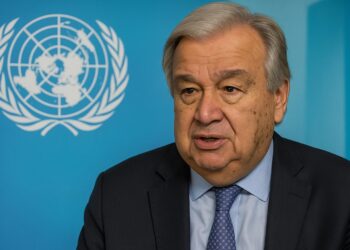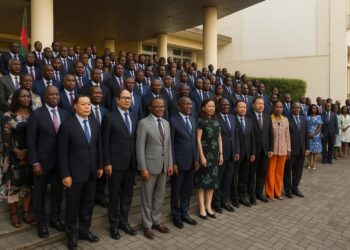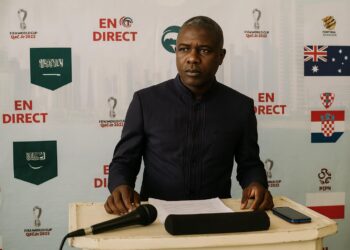Seasonal Rains and Urgent Drainage Needs
Every September, the Congo River’s tributaries swell and Brazzaville braces for storms that can drop more than 1 200 millimetres of water in a few weeks, according to national meteorological data. Without clear drainage channels, entire neighborhoods face flooding, erosion and traffic paralysis.
Health officials warn that stagnant water encourages mosquitoes and waterborne pathogens, amplifying malaria and cholera risks during the wet season. The World Health Organization recorded regional cholera flare-ups along the Congo River basin last year, underscoring the urgency of preventive action.
Government-Led Clean-Up Strategy
On 29 August, Minister of Urban Sanitation, Local Development and Road Maintenance Juste Désiré Mondelé launched an intensive cleaning campaign at the Zanga Dia Ba Ngombe collector in Makélékélé and Bacongo. The initiative, supported by Turkish operator Albayrak and the NGO Salubrité sans Frontières, targets Brazzaville’s largest drains.
Teams armed with excavators, shovels and high-pressure pumps are removing silt, tyres and household refuse that have accumulated over years. Officials estimate that each kilometre of conduit contains up to 200 tons of waste, a figure consistent with studies by UN-Habitat on rapidly urbanising African capitals.
Policing Litter: The New Coercive Framework
Recognising recurring dumping, Mondelé introduced what he called a “coercive method”. Anyone caught discarding rubbish in a non-designated area will be taken to a police station for hygiene instruction before performing community service. Local ward chiefs have been instructed to keep daily logs of offenders.
The approach mirrors litter-control bylaws in Kigali and Nairobi where fines and mandatory clean-up shifts have improved compliance, according to the African Development Bank. Brazzaville’s ordinance, however, emphasises education first, reflecting the government’s stated aim of building a culture of environmental responsibility rather than simply punishing.
Community Engagement and Civil Society Support
Civil society groups are mobilising door-to-door campaigns to complement enforcement. “The city’s beauty is our shared duty,” said Stève Francis Angouelet, president of Salubrité sans Frontières, as volunteers distributed leaflets explaining that blocked drains can raise flood levels by up to fifty centimetres in densely populated districts.
Neighbourhood committees in Ouenzé, Moungali and Poto-Poto have begun weekend watch patrols. Residents interviewed by Télé Congo welcomed the prospect of cleaner streets but asked for more public bins and regular waste collection to make compliance realistic. Municipal authorities say additional receptacles are due next quarter.
Public Health Implications and Regional Context
Congo-Brazzaville recorded more than 110 000 malaria cases last year, according to the Ministry of Health. Entomologists note that tyre-clogged gutters provide ideal breeding grounds for Anopheles mosquitoes. Clearing the collectors is therefore framed not only as infrastructure maintenance but also as a vector-control intervention.
The government’s early start, ahead of peak rains in October, aligns with guidance from the African Centres for Disease Control, which advocates pre-season clearance to cut emergency spending later. A 2020 World Bank report estimated that urban flooding costs Brazzaville up to 3 percent of local GDP annually.
Engineering Challenges and Long-Term Maintenance
Many of Brazzaville’s collectors were built in the 1970s to serve a city half its current size. Hydraulic engineer Dieudonné Ngouabi argues that capacity upgrades and debris screens are essential complements to cleaning. He advocates modular box culverts that can be inspected without heavy machinery.
Funding remains a constraint. While Albayrak’s concession covers daily street sweeping, large-scale dredging is financed through a public investment envelope approved by Parliament in July. Development partners such as the European Union have expressed interest in co-funding smart sensors to monitor blockage points in real time.
Climate Resilience and Urban Planning
Climate projections by the Intergovernmental Panel on Climate Change forecast more intense rainfall events for Central Africa by 2030. Urban planners in Brazzaville are therefore linking the current clean-up to broader resilience strategies, including permeable pavements and green corridors that slow runoff before it reaches collectors.
The Ministry of Land Use is updating zoning rules to discourage construction on natural floodplains. Experts from the Economic Community of Central African States say integrated drainage networks could shrink disaster-response costs regionally. Brazzaville’s pilot may thus inform standards elsewhere on the continent.
Political Backing and Public Perception
President Denis Sassou Nguesso has repeatedly highlighted environmental stewardship in recent addresses, framing sanitation as part of the ’Congo of the Future’ agenda. Analysts note that visible drainage works deliver tangible gains for citizens, reinforcing state credibility while sidestepping partisan debate.
So far, social media reaction has been cautiously upbeat. Images of previously choked gutters now running clear have circulated widely, accompanied by hashtags calling for citizen vigilance. Whether the new coercive measures will sustain behavioural change through the rainy months ahead remains the pivotal test.
International Cooperation Opportunities
Officials are engaging with the African Union’s Great Green Wall initiative to explore funding links between sanitation and climate adaptation. “Healthy waterways strengthen urban ecosystems,” said AU environment commissioner Josefa Sacko during a virtual briefing. A joint technical mission to Brazzaville is tentatively scheduled for early next year.
Stakeholders hope the partnership will unlock sustainable financing.

































